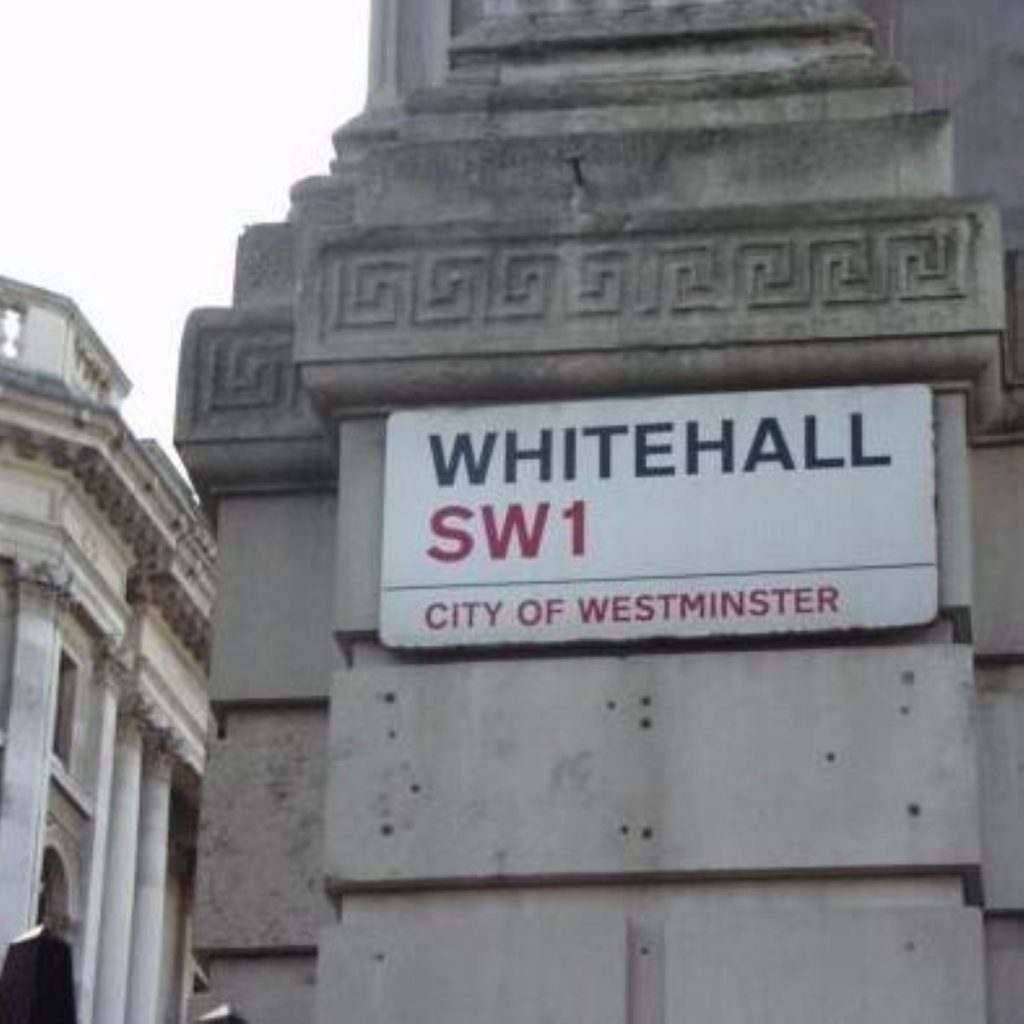Civil service ‘needs to be more accountable’
The lack of clear lines of responsibility in Whitehall is allowing civil servants and ministers to blame each other when things go wrong, a new report warns.
A study from the Institute of Public Policy Research (IPPR) today finds frustration on both sides that a lack of proper accountability in the civil service is holding it back from working as efficiently as it should.
It also reveals concern about the lack of expertise among both ministers and permanent secretaries – the top civil servants in government departments – which has caused what many see as an over-reliance on outside consultants.
The IPPR report provides a rare glimpse into how Whitehall’s top brass view each other – the authors interviewed 65 senior people, including ten serving permanent secretaries and eight ministers.


Both groups complain about a lack of accountability, with one permanent secretary insisting that they should be held to account for operational failures, rather than allowing ministers to take the rap under the doctrine of ministerial responsibility.
Permanent secretaries only have to explain themselves with regard to their department’s accounts when they appear before the public accounts select committee once a year.
“The most fundamental problem with the civil service is that it is not accountable to anybody. It is certainly not accountable to ministers. [This] explains why the pace of change in Whitehall is best described as glacial,” one minister agreed.
In seven government departments, including the Home Office and the Ministry of Defence (MoD), less than one in ten officials believe that poor performance is properly dealt with in their organisation.
One top civil servant admitted that as a group, permanent secretaries have managed to “duck accountability”, and called for changes that would allow “much greater and rigorous scrutiny of permanent secretary performance”.
However, another noted that the confusion benefited both sides, saying: “The ‘accountability fudge’ we have now protects ministers and officials.
“Ministers can say ‘not me guv’ while officials hide behind the minister. This is not in the interest of effective delivery. This is not in the interest of effective government.”
There was also concern about the lack of proper expertise among those responsible for carrying out government policy, with one minister warning: “I was regularly frustrated by the lack of expertise in the department.
“People complain that we spend too much on outside consultants and others, but often we don’t have a choice.”
The IPPR recommends the creation of a new civil service executive to appoint and manage civil servants, and a new governing body, appointed by parliament, to make clear what is expected of officials and ministers.
“Lines of accountability in Whitehall are ill-defined and too often responsibility falls between the cracks. Politicians and civil servants duck and dive behind each other and no one takes clear responsibility for driving improvement,” said IPPR director Nick Pearce.
“Failure goes unpunished and success unrewarded. The civil service will never achieve consistently high performance without external accountability and effective performance management.”












